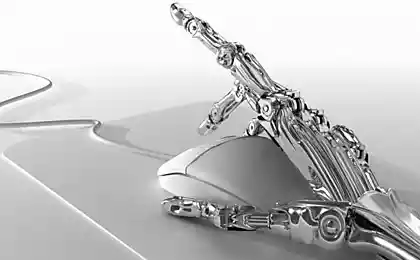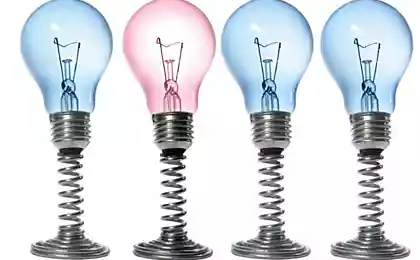595
7 questions to determine the level of emotional intelligence
The traditional model of interviewing involves obtaining information about the experience of the applicant, and not his way of thinking. People with high emotional intelligence is able to analyze and control his actions, has a high level of motivation able to effectively communicate with others and empathize with them. In other words, is a mixture of several qualities that are very difficult to assess. As a result, many recruiters in the selection of the candidate rely on their intuition and subjective opinion. In some cases, to rely on such unreliable methods is simply unacceptable. A candidate with high emotional intelligence will surely find common language with colleagues and will easily accept any changes, therefore, for many employers this feature is a priority. Fortunately, the format of a traditional interview, you can always change.

All the smart candidates have long known how to demonstrate a high level of emotional intelligence (or simulate it) in formal settings. If you want to see the true state of things, the first step is to go beyond the office. Go to a quiet coffee shop, Park or other place where nobody will disturb you. So you will be able to play on the surprise effect, but the caller will not feel uncomfortable. And then ask him seven questions. 1. What most bothers you in other people? Instead of a direct question can tell you a little story about a relative or a colleague who annoys you and then ask, does the candidate share similar experiences. Of course, the smart applicant will immediately talk about how he coped with the problem, but you still get the idea of how he perceives other people. In addition, you will learn whether he is aware of your impact on others and observe whether the lines are. 2. Tell me about the day things went from bad to worse In this case too, you can give an example from your life, describing how you had lost. Model the situation so that the interviewee could try it for themselves and sympathize with you. Wittingly or unwittingly, we tend to repeat the actions of those whom we admire. Ask the caller to think about it. The report should not consist of one large complaint. Ask about how he coped with the situation. Perhaps he had long worried about their problems and blamed them of others, and maybe, immediately took up the search for a solution. Look in the source of any evidence that he tried to adapt to new circumstances. You need someone who is able to be flexible in unpredictable situations, since this quality is considered the hallmark of high emotional intelligence. 3. Tell us about the colleague with whom you actually managed to find a common language. Why do you think this happened? About the person can be judged by how he relates to others. Or rather, how he perceives those relations. What is your applicant? What he appreciates in other people? The answer to this question gives an idea about how can talking to analyze their actions. If he talks about himself with humor, it is also a good sign. If the story sounds too dry and formal, he probably invented. 4. What you can teach me? This question may be a little to knock the candidate off, but of course in a good way. Show your ignorance in any matter and ask to give a detailed explanation. Follow the manifestation of frustration or impatience (facial expressions, body language, tone of voice). Whether the interviewee to ask probing questions to understand, what exactly did you not understand? Can he briefly and clearly formulate their thoughts and to change it if the first option is not enough to understand? Candidate with high level of emotional intelligence obviously believes he is obliged to explain, to understand. He was attracted to the opportunity to share knowledge with others and hone their communications skills, so he had no difficulty in answering the questions. 5. Tell us about the person you admire. Explain why this happens Wittingly or unwittingly, we tend to repeat the actions of those whom we admire. Ask the caller to think about it. Perhaps his object of admiration is a public person and able to inspire a crowd. But is it a brilliant thinker, preferring to distract him from thinking about ideas. To this question there is no right and wrong answers. Sometimes applicants tell us about the qualities they dream to have, and not those that United them with the ideal. This is very useful information. Listen carefully, ask questions and try to understand, to aspire to the applicant. You can also ask, what qualities we are discussing the man does not like the applicant in spite of all the positive aspects.

6. What are you proud of and why? You can talk about what people are proud of themselves, or leave the question open. The reason for pride may not be related to professional activities, the important thing is the applicant tells us about him. If he mentions those who helped him achieve success? Whether he revels in his victory alone? People with high emotional intelligence know that the really important events do not happen by themselves, without the influence of others. They recognize the merits of other people — family members, friends and colleagues that were next to them at a difficult time, and then shared with them all the honors. In some cases the greatest achievements really belong to one person, but people with high emotional intelligence know that the really important events do not happen by themselves. 7. If you had your own business, what people you would hire and why? The answer to this question will give you ideas about what qualities other people are presented to the most valuable candidate. With whom he likes to work with? What he puts more emphasis on people or results? What styles of communication and management he prefers? If he likes to work in a team? Can it work in isolation? The further you depart from the standard scheme of interviewing, which allows you to learn mostly about previous experience of the candidate, the better you will be able to assess his level of emotional intelligence. Get creative and feel free to share your experiences and opinions. This will help the applicant to open up and be honest about what's really important. Also interesting: Persuade in a minute — simple and affordable methods of Remote worker – the dream of the employer, the above questions can serve as a good beginning for dialogue. Feel free to change them at own discretion, to improve the quality of recruitment.published
P. S. And remember, only by changing their consumption — together we change the world! ©
Source: www.kakdelat.ru/about/life.php?ID=19965

All the smart candidates have long known how to demonstrate a high level of emotional intelligence (or simulate it) in formal settings. If you want to see the true state of things, the first step is to go beyond the office. Go to a quiet coffee shop, Park or other place where nobody will disturb you. So you will be able to play on the surprise effect, but the caller will not feel uncomfortable. And then ask him seven questions. 1. What most bothers you in other people? Instead of a direct question can tell you a little story about a relative or a colleague who annoys you and then ask, does the candidate share similar experiences. Of course, the smart applicant will immediately talk about how he coped with the problem, but you still get the idea of how he perceives other people. In addition, you will learn whether he is aware of your impact on others and observe whether the lines are. 2. Tell me about the day things went from bad to worse In this case too, you can give an example from your life, describing how you had lost. Model the situation so that the interviewee could try it for themselves and sympathize with you. Wittingly or unwittingly, we tend to repeat the actions of those whom we admire. Ask the caller to think about it. The report should not consist of one large complaint. Ask about how he coped with the situation. Perhaps he had long worried about their problems and blamed them of others, and maybe, immediately took up the search for a solution. Look in the source of any evidence that he tried to adapt to new circumstances. You need someone who is able to be flexible in unpredictable situations, since this quality is considered the hallmark of high emotional intelligence. 3. Tell us about the colleague with whom you actually managed to find a common language. Why do you think this happened? About the person can be judged by how he relates to others. Or rather, how he perceives those relations. What is your applicant? What he appreciates in other people? The answer to this question gives an idea about how can talking to analyze their actions. If he talks about himself with humor, it is also a good sign. If the story sounds too dry and formal, he probably invented. 4. What you can teach me? This question may be a little to knock the candidate off, but of course in a good way. Show your ignorance in any matter and ask to give a detailed explanation. Follow the manifestation of frustration or impatience (facial expressions, body language, tone of voice). Whether the interviewee to ask probing questions to understand, what exactly did you not understand? Can he briefly and clearly formulate their thoughts and to change it if the first option is not enough to understand? Candidate with high level of emotional intelligence obviously believes he is obliged to explain, to understand. He was attracted to the opportunity to share knowledge with others and hone their communications skills, so he had no difficulty in answering the questions. 5. Tell us about the person you admire. Explain why this happens Wittingly or unwittingly, we tend to repeat the actions of those whom we admire. Ask the caller to think about it. Perhaps his object of admiration is a public person and able to inspire a crowd. But is it a brilliant thinker, preferring to distract him from thinking about ideas. To this question there is no right and wrong answers. Sometimes applicants tell us about the qualities they dream to have, and not those that United them with the ideal. This is very useful information. Listen carefully, ask questions and try to understand, to aspire to the applicant. You can also ask, what qualities we are discussing the man does not like the applicant in spite of all the positive aspects.

6. What are you proud of and why? You can talk about what people are proud of themselves, or leave the question open. The reason for pride may not be related to professional activities, the important thing is the applicant tells us about him. If he mentions those who helped him achieve success? Whether he revels in his victory alone? People with high emotional intelligence know that the really important events do not happen by themselves, without the influence of others. They recognize the merits of other people — family members, friends and colleagues that were next to them at a difficult time, and then shared with them all the honors. In some cases the greatest achievements really belong to one person, but people with high emotional intelligence know that the really important events do not happen by themselves. 7. If you had your own business, what people you would hire and why? The answer to this question will give you ideas about what qualities other people are presented to the most valuable candidate. With whom he likes to work with? What he puts more emphasis on people or results? What styles of communication and management he prefers? If he likes to work in a team? Can it work in isolation? The further you depart from the standard scheme of interviewing, which allows you to learn mostly about previous experience of the candidate, the better you will be able to assess his level of emotional intelligence. Get creative and feel free to share your experiences and opinions. This will help the applicant to open up and be honest about what's really important. Also interesting: Persuade in a minute — simple and affordable methods of Remote worker – the dream of the employer, the above questions can serve as a good beginning for dialogue. Feel free to change them at own discretion, to improve the quality of recruitment.published
P. S. And remember, only by changing their consumption — together we change the world! ©
Source: www.kakdelat.ru/about/life.php?ID=19965























